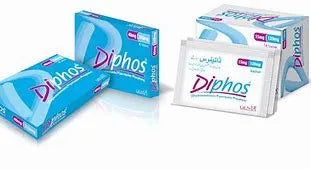Empagliflozin 10mg Tablet
Empagliflozin is a prescription medicine used for managing type 2 diabetes mellitus. It works by helping the kidneys remove excess glucose through urine, thereby improving blood sugar control. In addition to glycemic management, it offers cardiovascular and renal protective benefits, making it an important option for diabetic patients with heart or kidney complications.
Ingredients
Empagliflozin 10mg
Drug Class
SGLT2 Inhibitor (Sodium-Glucose Cotransporter 2 Inhibitor).
Dosage Form
Tablet
Uses
Empagliflozin is commonly used for:
-
Improving glycemic control in type 2 diabetes mellitus as an adjunct to diet and exercise.
-
Reducing the risk of cardiovascular death in patients with type 2 diabetes and established cardiovascular disease.
-
Supporting weight management in diabetic patients.
-
Improving renal outcomes in patients with diabetes and chronic kidney disease.
-
Lowering cardiovascular risks in patients with diabetes and hypertension.
Dosage
-
Adults with type 2 diabetes (glycemic control): 10mg once daily, in combination with other antidiabetic medicines as advised.
-
Type 2 diabetes with cardiovascular disease: 10mg once daily, along with standard therapy.
-
Hypertension with cardiovascular risk: 10mg once daily in addition to other prescribed medications.
-
Chronic kidney disease with albuminuria: 10mg once daily, initiated under specialist guidance.
-
Obesity or overweight with comorbidities: 10mg once daily, under physician’s advice.
Dosage must always be as directed by the prescribing doctor.
In Case of Overdose
Overdose may cause hypoglycemia, dehydration, kidney impairment, or electrolyte imbalance. Immediate medical attention is required. Supportive treatment, including monitoring renal and cardiac function, is essential.
Missed Dose
Take as soon as you remember. If it is close to the next scheduled dose, skip the missed dose. Do not double the dose.
How To Use
-
Swallow the tablet whole with water, once daily, preferably at the same time each day.
-
Can be taken with or without food.
-
Do not take more or less than prescribed.
When Not to Use
Avoid if you have:
-
Type 1 diabetes or diabetic ketoacidosis.
-
Severe kidney impairment or on dialysis.
-
Low sodium levels (hyponatremia).
-
History of serious hypersensitivity to empagliflozin.
-
Severe dehydration or acute illness.
Side Effects
Possible side effects include:
-
Increased urination.
-
Low blood sugar (especially when used with insulin or sulfonylureas).
-
Urinary tract infections or genital infections.
-
Dehydration or low blood pressure.
-
Fatigue.
-
Rarely: bone fractures or kidney impairment.
Precautions & Warnings
-
Monitor kidney function regularly during therapy.
-
Ensure adequate hydration to avoid dehydration.
-
May increase risk of urinary tract and genital infections.
-
Use with caution in elderly patients and those on diuretics.
-
Pregnant and breastfeeding women should consult a doctor before use.
Drug Interactions
-
Insulin and sulfonylureas: may increase risk of hypoglycemia.
-
Diuretics: increase risk of dehydration and low blood pressure.
-
ACE inhibitors/ARBs: may enhance risk of kidney impairment.
-
Lithium: may alter drug levels due to diuretic effect.
Food Interactions
-
Can be taken with or without food.
-
Avoid excessive alcohol intake, as it increases hypoglycemia risk.
-
Maintain a balanced diet and hydration.
Storage/Disposal
-
Store below 25°C in a cool, dry place.
-
Keep away from direct sunlight and moisture.
-
Do not use beyond expiry date.
-
Keep out of reach of children and pets.
Quick Tips
-
Take at the same time each day for consistent effect.
-
Drink plenty of fluids to prevent dehydration.
-
Monitor blood sugar regularly.
-
Report frequent urination, dizziness, or signs of infection to your doctor.
-
Do not stop medication without consulting your doctor.
Laboratory Screening
Regular monitoring may include:
-
Serum creatinine and eGFR (kidney function).
-
Electrolytes (potassium, sodium, bicarbonate).
-
HbA1c for long-term glycemic control.
-
Weight and BMI tracking.
-
Blood pressure monitoring.
-
Lipid profile.
Doctor’s Review
Dr. Hammad Ali, MBBS, FCPS
“Empagliflozin for patients with type 2 diabetes, especially those with cardiovascular risks or kidney involvement. It not only helps with sugar control but also provides heart and kidney protection. To stay well hydrated and watch for urinary or genital infections, which can occur with this medicine. It is generally well tolerated and effective when taken consistently.”
Disclaimer
This information is provided for educational and product reference purposes only. It is not a substitute for medical advice or prescription. Always consult a licensed physician or pharmacist before starting, changing, or stopping any medication.








Reviews
There are no reviews yet.